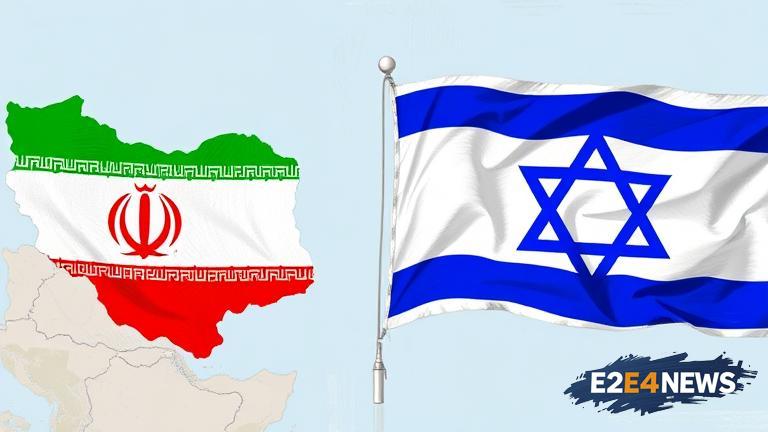The conflict between Iran and Israel is a complex and multifaceted issue, with roots dating back to the 1979 Iranian Revolution. Since then, the two countries have been engaged in a bitter rivalry, with Iran’s anti-Israel stance and Israel’s concerns over Iran’s nuclear program being major points of contention. In recent years, the situation has become increasingly volatile, with both sides engaging in a war of words and proxy conflicts in the region. Iran has been accused of supporting militant groups such as Hezbollah and Hamas, which have been involved in conflicts with Israel. Israel, on the other hand, has been conducting airstrikes against Iranian targets in Syria and Lebanon, in an effort to prevent the transfer of advanced weaponry to these groups. The situation has been further complicated by the involvement of other regional players, including the United States, Saudi Arabia, and the United Arab Emirates. The US has been a key ally of Israel, while Saudi Arabia and the UAE have been working to counter Iranian influence in the region. Despite efforts to negotiate a peaceful resolution, the conflict between Iran and Israel shows no signs of abating. In fact, tensions have been escalating in recent months, with both sides engaging in a series of tit-for-tat attacks. The international community has been calling for calm and restraint, but so far, these efforts have been unsuccessful. The conflict has significant implications for the region and the world, with the potential to draw in other countries and spark a wider conflict. The US has been working to build a coalition to counter Iranian influence, while Russia and China have been backing Iran. The European Union has been trying to negotiate a peaceful resolution, but so far, these efforts have been unsuccessful. The conflict between Iran and Israel is a reminder of the complex and volatile nature of the Middle East, where longstanding rivalries and competing interests have created a powder keg of tensions. The situation requires careful diplomacy and a commitment to finding a peaceful resolution, in order to prevent a wider conflict and promote stability in the region. The international community must work together to address the root causes of the conflict and find a way to bring the two sides to the negotiating table. This will require a sustained effort and a willingness to compromise, but it is the only way to achieve a lasting peace. The alternative is a continued escalation of tensions, which could have disastrous consequences for the region and the world. The conflict between Iran and Israel is a pressing issue that requires immediate attention and action. The world cannot afford to wait and see what happens, but must instead work proactively to find a solution. This will require a combination of diplomacy, economic pressure, and military restraint, as well as a commitment to finding a peaceful resolution. The stakes are high, but with careful planning and a commitment to peace, it is possible to find a way out of this crisis and create a more stable and secure region.
